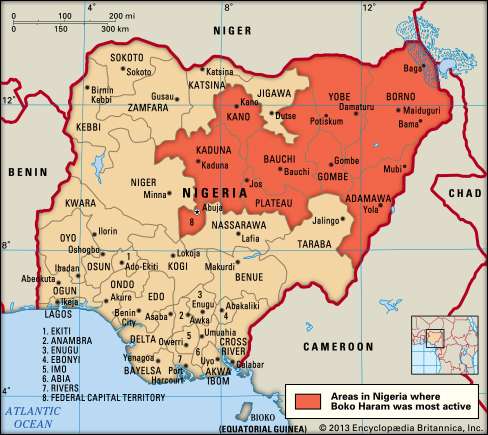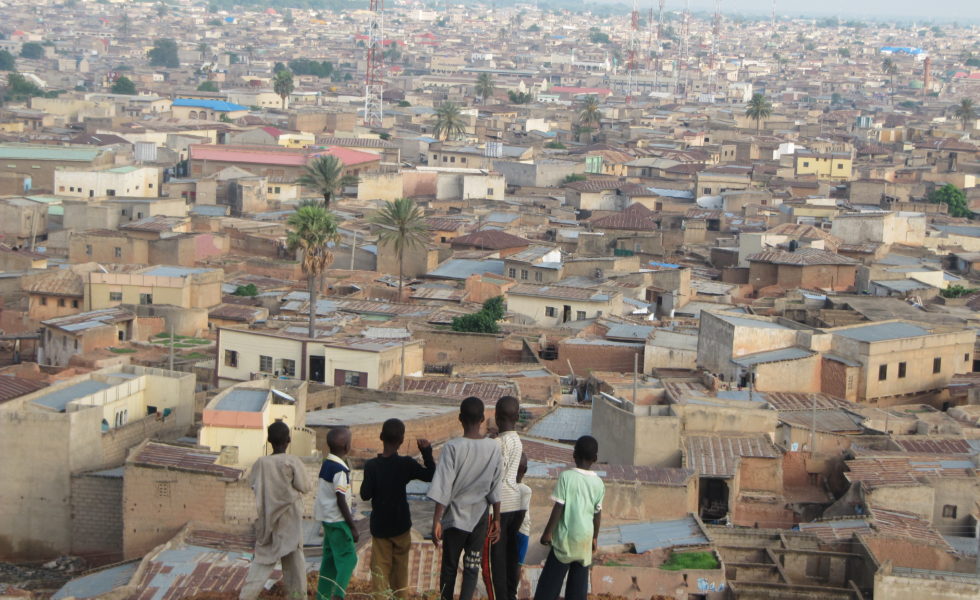
Northern Nigeria Children’s Garden
One of the worst humanitarian disasters in modern history is unfolding in Northern Nigeria. A drought has displaced and starved millions. Hundreds of children have been kidnapped from their schools by militant groups. The region is in dire need of support.
A food program to feed and protect Nigeria’s child beggars.
Every day, millions of Nigerian boys take to the streets to beg for food. They’re known as the Almajiri. They have no home and no family. It’s time for the global community to act.
Most have been sent from home by parents who can no longer feed or care for them. Often, they’re sent to live and study with poor Quranic scholars. In reality, they become child labor, sharing their meager begging proceeds with their teachers.
Many go missing every day. We can’t know how many. Nobody’s counting.
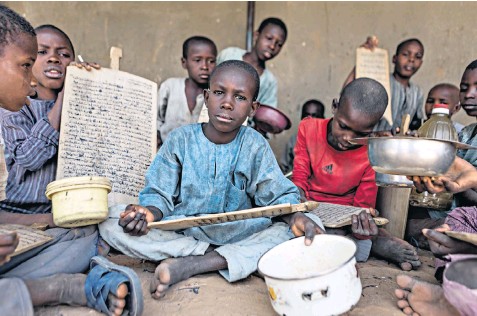
The stakes: life, death, safety, survival.
Begging is a way of life for Nigerian Northern children. A small portion are given odd jobs: laundry, shining shoes, selling tea, hauling luggage. Others hatch a business, if they can get support from the community.
Many aren’t so lucky.
Some enroll into AOGs (Armed Opposition Groups) while others are abducted and conscripted by force. An unknown percentage of the Almagiri fall victim to more immediate forms of abuse.
The Almajiri are not usually talked about in the open. Most live under the radar. Their deaths are not reported.
What if the Almajiri didn’t have to beg? What if they could learn job skills, while producing the food they need to feed themselves and their teachers? What if they could get off the streets, and begin safe, protected, productive lives?
That’s the goal of our  newest Children’s Garden project. We hope to create solutions that decrease begging, increase self-sufficiency, and give the Almajiri hope.
newest Children’s Garden project. We hope to create solutions that decrease begging, increase self-sufficiency, and give the Almajiri hope.
And we expect to see results in as soon as six months.
Our vision: a protected food garden of vegetables and chicken egg that will bring immediate self-sufficiency and safety to 100 Almagiri. The solutions are security and independence. To learn new skills. To grow food to eat and share.
It seems simple, and in a stable place, it would be. This is not a stable place.
The first step has already been taken. Our Project Manager has chosen a Quranic school and all seven teachers at the school are on board. A master gardener who will manage the day to day operations was selected in early May. A bank account was established and a system of fiduciary oversight agreed upon. Funds were wired in early June.
Ground is now being broken for a large vegetable garden and hen house in a vacant lot next to the clapboard shelter where 100 beggar children sleep.
When the farm is up and running, the Almajiri will grow food. They won’t have to beg for it. They’ll also learn job skills, including practical farming and basic bookkeeping. Their training will help sustain the project, even after it officially ends.
A small investment will yield life-changing returns.
Global Roots has committed funds to the program until it is self sustaining. This will happen in one to three years depending on a number of variables that we will monitor but can’t control.
The chickens will, quite literally, lay golden eggs. The program will sell up to 40% of the birds to villagers. We’ll reinvest the proceeds, either to expand the project’s scale, or to fund older Almajiri (16 – 18 yrs) who want to start a similar business.
The more Almajiri can provide for themselves, the less they’ll need to beg.
A baseline survey is underw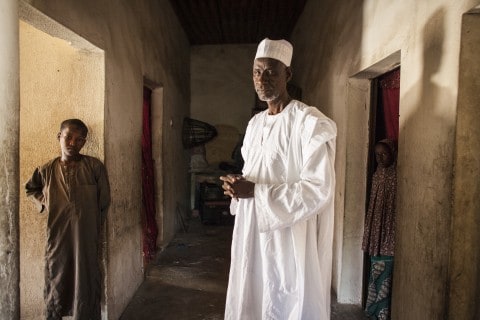 ay to determine how many students beg every day. Current estimates point to over 70%.
ay to determine how many students beg every day. Current estimates point to over 70%.
Our goal is to reduce that number to zero at our school. Quickly. By the end of the year.
To succeed here, you need the right relationships. Enter our project manager.
This project is the first of its kind in Northern Nigeria. Why? Because it’s notoriously difficult to operate here. Success requires relationships. Establishing those relationships takes time.
Fortunately, our project manager is the perfect person for this opportunity: Martin Peter.
Martin is an engineer currently working in the development industry. His goal is to harness technology in the developing world to bring about social change. Martin has worked with several aid organizations, including Action Against Hunger and Mercy Corps.
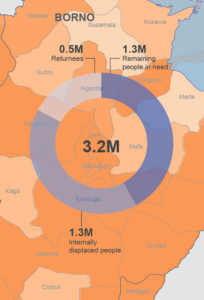
Grave risks. Incalculable rewards.
This is not a project for the weak of heart. It’s risky. But our success with Children’s Gardens in rural Afghanistan has given us valuable experience. We know how to operate in areas governed by Sharia Law. We know how to protect orphaned children from abduction.
According to our local advisor, Global Roots is the first international children’s aid organization to bring true relief to the Almajiri. And with the support of our generous backers, we’ll succeed here.
.
_____________________________________________________________________
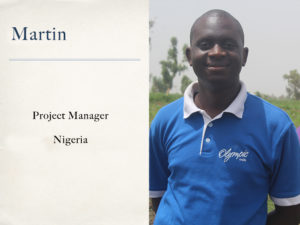
Meet Martin Peter, Global Roots Project Manager Northern Nigeria
Martin Peter is an engineer currently working in the development industry, his goal is to use technology in the development world to bring about social change. After working in the tech sector in the early part of his career, Martin moved to the humanitarian and development industry, responding to the ongoing humanitarian crises happening where he has lived for the most of his life. He has worked with several organizations such as Action Against Hunger and, most recently, Mercy Corps. Martin believes in using technology to better the lives of others and has taken a conscious effort in making sure that technology plays a major role in his work. One of the major influences in his life has been Massive Online Open Courses (MOOCs). Martin’s most recent work is a resilience assessment highlighting the major challenges and coping strategies of some of the most vulnerable and marginalized people of Borno state, Nigeria.
When not working, Martin enjoys a good game of football (FC Barcelona), a good book, a good movie (anything from Christopher Nolan is fine) or a road trip. Martin holds a B.Eng. in computing.
Project Data and Work Plan
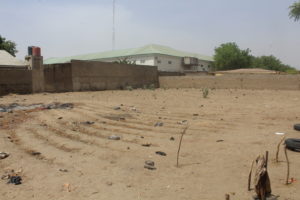
Site for Garden and hen house
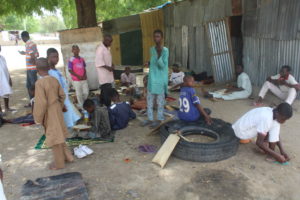
Scroll through the following powerpoint presentation for a breakdown of our project data:
 Global Roots
Global Roots